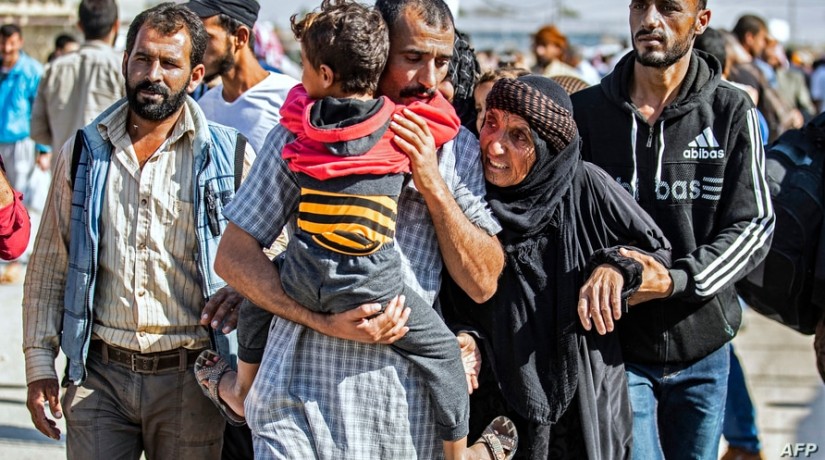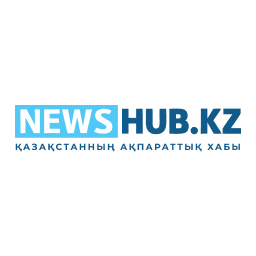Could Kazakhstan Efforts to Repatriate Foreign Fighters Be a Model?
 18 Января 2021
18 Января 2021
 1239
1239
 Политика,
Социум
Политика,
Социум
 repatriation,
foreignfighters,
Syria
repatriation,
foreignfighters,
Syria
 Фото:AFP
Фото:AFP
Almaty.
January 18. Information Center - Kazakhstan has been leading the way in
repatriating Kazakh foreign fighters and their families held in Kurdish-controlled
prisons and camps in northeastern Syria, with experts debating whether such
efforts could be a model for other countries that have citizens held in Syria, Voice of America reports.
“Kazakhstan has invested substantial government resources and partnered
with nongovernmental organizations across the country to provide initial intake
support and longer-term follow-on support at 17 regional support centers,” said
Gavin Helf, a senior expert on Central Asia at the United States Institute of
Peace.
He told VOA that Kazakh authorities have tried to reduce social stigmatization
of returnees by issuing clean passports and documents that will allow them to
integrate more easily.
Following the military defeat
of the Islamic State terror group in March 2019, U.S.-backed Syrian Democratic
Forces (SDF) captured thousands of foreign fighters and their families.
The SDF says it currently holds about 2,000 foreign fighters and 13,000 foreign
women and children who are family members of IS-linked fighters.
It is unclear how many Kazakh nationals are still being held in Syrian prisons
and detention camps, but some monitor groups say an estimated 1,000 Kazakhs
traveled to Syria at the peak of that country’s civil war in 2012 to join IS.
According to Kazakh officials, the Central Asian country so far has repatriated
more than 700 Kazakh nationals from Syria, including 33 IS fighters, 187 women
and 490 children.
U.S. officials have commended Kazakhstan’s efforts to repatriate and
rehabilitate its citizens from Syria.
Chris Harnisch, deputy coordinator for Countering Violent Extremism at the U.S.
State Department, said Kazakhstan was the first country to step up after the
U.S. government called on countries to take back their nationals held in Syria.
“When they [Kazakh government officials] initiated their first repatriation
operation, they didn’t just dip their toe in the water, they said, ‘We’re going
to bring back effectively as many Kazakhstanis as we could,’ ” Harnisch said
last week during an online event held by the Atlantic Council.
Kazakh officials say their effort to take back these individuals from Syria is
based on humanitarian grounds.
“Given the number of women and kids, this is a humanitarian operation,” said
Yerzhan Ashikbayev, Kazakhstan’s deputy foreign minister.
“They were without access to their basic needs of food, shelter, clean water,
health and education,” he said during the Atlantic Council’s event, adding that
the Kazakh women and children were exposed to different types of threats and
violations, such as sexual abuse, exploitation and potential recruitment by
terrorist groups.
How successful is repatriation?
Experts are split, though, about the effectiveness of Kazakhstan’s efforts
after the repatriation of these former IS fighters and their families.
Noah Tucker, a senior fellow at the Atlantic Council’s Eurasia Center who has
interviewed many of the Kazakh returnees from Syria, says the humanitarian
nature of the repatriation could be an important step toward preventing future
violent extremism in Kazakhstan.
“Many of these people have been featured in media reporting and documentaries
and been allowed to tell their stories about what they saw in Syria and what
happened there,” Tucker said, adding that Kazakhstan’s major benefit from these
repatriation efforts is the ability to facilitate a smooth reintegration of the
returnees back into society.
Other experts, however, say Kazakhstan’s lenient approach in prosecuting some
adult returnees and its lack of preventive measures on reoccurrence of
radicalism among the returnees could be a challenge for the country in the long
term.
“Lack of prosecution and receiving heroes’ treatment after returning from being
members of a terrorist organization doesn’t send the right message to the
public,” Vera Mironova, a researcher at Harvard University, told VOA, adding
that many of the returnees are being used as a propaganda tool by the Kazakh
government to project the power of the ruling elite.
U.S. officials said Washington has played an important role in providing Kazakh
authorities with assistance for effective rehabilitation programs for the
returning individuals.
Analyst Helf said Kazakhstan has taken a very “ideological” approach to the
problem, measuring success by external modifications of behavior, such removing
the hijab, a veil worn by conservative Muslim women.
“Although they do provide other material and mental welfare support, in
Kazakhstan the primary emphasis is on de-radicalization,” he said. “They are
weaker on the longer-term issues of trauma-informed care and PTSD
[post-traumatic stress disorder], educational accommodations for children with
cognitive and emotional learning gaps, and long-term social work and tracking.”
But Steve Weine, a professor of psychiatry at University of Illinois who is
involved in Kazakhstan’s reintegration efforts, says a rehabilitation program
has been designed in a way that offers mental health care, family support,
education and job opportunities for those who have been repatriated from Syria.
The program “is working on all these levels; it’s doing what needs to be done,”
Weine said at the Atlantic Council event, adding that reintegration “is not
simply an issue of de-radicalizing or separating people from ideology.”
He noted that a successful reintegration process should involve all aspects of
resettlement, including housing, employment and public safety.
John Herbst, director of the Eurasia Center at the Atlantic Council and a
former U.S. ambassador to Uzbekistan and Ukraine, said that Kazakhstan’s
repatriation program is “enlightened, very smart and it meets all of U.S.
interests” regarding countering violent extremism in Central Asia.
According to the Soufan Center, a New York-based research group, more than
5,000 individuals from Central Asian countries have traveled to Syria and Iraq
to join IS.
Calls for more repatriation
Kurdish officials in Syria have called on countries to take back their detained
citizens, warning that they do not have enough resources to keep IS prisoners
and their families in captivity indefinitely, especially during the coronavirus
pandemic.
Several Western countries, such as the United States, France, Germany, Britain
and Finland, and countries from other parts of the world have repatriated some
of their citizens.
On Wednesday, France said it had brought home seven children of French foreign
fighters held in Syria, bringing the number of repatriated children to 35.
ru Займы под 120% годовых: дело о незаконном кредитовании передано в
ru Выставка тепличных технологий Grow Expo Astana 2026 пройдет 8-10 апреля
ru Жаркентская мечеть включена в предварительный список Всемирного наследия ЮНЕСКО
ru В Минтруда обсудили новые механизмы трудоустройства лиц с инвалидностью
ru Схема обмана студентов через соцсети раскрыта в Шымкенте
ru В Акорде состоялась церемония встречи Президента Сербии
ru Мобильный ЦОН: сколько услуг казахстанцы получают через приложение
ru Подростки с особыми потребностями осваивают профессию кондитера в Карагандинской области
ru КНБ ликвидировал канал контрабанды наркотиков
ru Охлажденное мясо птицы можно будет хранить в 3 раза дольше
ru Солдат Национальной гвардии разработал цифровой портал для военнослужащих
ru Учащиеся 0-9 классов второй смены переведены на дистанционный формат обучения
ru Пенсионерка едва не лишилась более 2 млн тенге в Павлодаре
ru Строительство нового завода Coca-Cola Içecek в Актобе планируется начать в
ru Один из крупнейших бизнесменов Польши построит фармзавод в Шымкенте
ru Стартует прием заявок на премию Президента Республики Казахстан «Алтын Сапа»
ru Президент Сербии Александр Вучич посетит Астану 26-27 февраля
ru Глава государства направил поздравительную телеграмму Эмиру Кувейта
ru МТСЗН РК опровергло фейк о ежегодном отпуске
ru В Алматы открылась юбилейная выставка о мастерах кино
ru В Астане вынесен приговор интернет-мошеннице
ru Олжас Бектенов о выделении 1 трлн тенге на посевную кампанию
ru Олжас Бектенов поручил упростить и оцифровать процедуру льготного кредитного финансирования
ru В Казахстане продолжается подготовка к паводковому периоду
ru В Алматы продолжают расширять фонд студенческих общежитий
ru Почти 3000 га сельхозземель возвращены в госсобственность в Туркестанской области
ru Марихуана в особо крупном размере изъята в ВКО
ru Олжас Бектенов провел заседание Совета директоров «Самрук-Қазына»
ru Из Турции экстрадирован подозреваемый в серийном мошенничестве
ru Спасатели МЧС оказали помощь 13 гражданам, оказавшимся в снежном заносе

 +77772555856
+77772555856
 Написать нам
Написать нам












